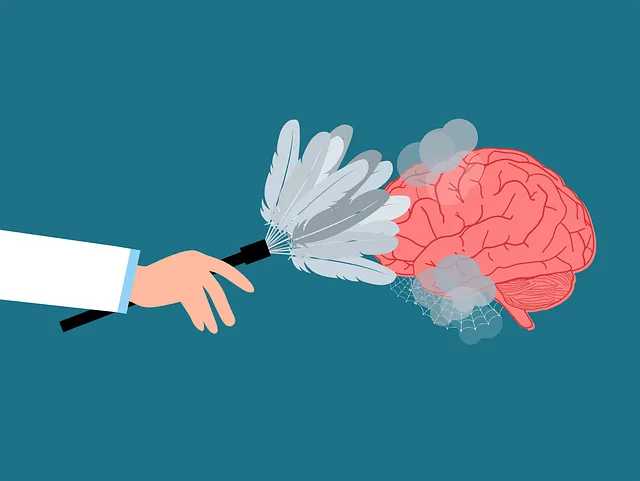The Parker Kaiser Permanente mental health center, as a community-based initiative, plays a vital role in destigmatizing mental illness and promoting early intervention through diverse services and evidence-based practices. It fosters mental wellness using holistic approaches like Mindfulness Meditation and Coping Skills Development, catering to various urban communities. The center's success lies in its collaborative partnerships and tailored programs, addressing mental health needs sustainably and effectively, while also prioritizing staff safety and self-care.
Mental health advocacy is a powerful tool for creating positive change, and initiatives like those at the Parker Kaiser Permanente mental health center by owner have shown remarkable impact. This article explores the critical role of advocacy in shaping public understanding of mental wellness. We delve into successful strategies, focusing on community engagement, as seen through a case study of Parker Kaiser Permanente’s approach. Additionally, we address challenges and solutions in mental health awareness campaigns, offering insights for effective advocacy initiatives worldwide.
- Understanding Mental Health Advocacy: A Necessary Conversation
- The Role of Community Centers in Promoting Wellness: A Case Study of Parker Kaiser Permanente
- Strategies for Effective Mental Health Advocacy Initiatives
- Overcoming Barriers: Challenges and Solutions in Mental Health Awareness Campaigns
Understanding Mental Health Advocacy: A Necessary Conversation

Mental health advocacy initiatives are crucial conversations that require open dialogue and collective action. At the core of this movement is the belief that everyone deserves access to quality mental healthcare, just as they do for physical well-being. The Parker Kaiser Permanente mental health center by owner exemplifies this commitment, offering comprehensive services tailored to diverse communities.
These advocacy efforts aim to reduce the stigma surrounding mental illness and promote early intervention. By raising awareness and providing support, we can foster environments that encourage self-care and resilience. Furthermore, initiatives like these play a vital role in implementing effective risk management planning for mental health professionals, ensuring they have the tools to navigate complex situations with empathy and expertise. Anxiety relief, stress reduction methods, and accessible resources are all integral parts of this necessary conversation.
The Role of Community Centers in Promoting Wellness: A Case Study of Parker Kaiser Permanente

Community centers play a pivotal role in promoting mental wellness, especially in diverse urban settings. A notable example is Parker Kaiser Permanente, a leading mental health center owned by Kaiser Permanente, which has been at the forefront of integrating various holistic practices into its services. This initiative underscores the growing recognition of cultural sensitivity in mental healthcare practice, emphasizing the importance of tailored support for different communities.
By offering programs like Mindfulness Meditation and Coping Skills Development, Parker Kaiser Permanente fosters an environment that caters to the unique needs of its diverse clientele. These programs not only enhance individuals’ ability to manage stress but also encourage a sense of belonging within the community. The center’s approach exemplifies how community-based interventions can significantly contribute to mental health advocacy by creating accessible and culturally responsive spaces for support and recovery.
Strategies for Effective Mental Health Advocacy Initiatives

Mental health advocacy initiatives require a multi-faceted approach to create meaningful change and improve access to care. One successful strategy, as exemplified by the Parker Kaiser Permanente mental health center by its owner, is integrating community engagement with evidence-based practices. By fostering open conversations about mental illness through educational workshops, peer support groups, and awareness campaigns, these initiatives can dispel stigma and promote early intervention.
Adopting Mind Over Matter principles and focusing on mood management techniques empowers individuals to take charge of their well-being. Collaborative efforts between healthcare providers, community leaders, and local organizations are vital for developing tailored programs that address diverse needs. Mental illness stigma reduction efforts, when combined with accessible resources and supportive environments, can lead to improved outcomes and enhanced quality of life for those facing mental health challenges.
Overcoming Barriers: Challenges and Solutions in Mental Health Awareness Campaigns

Mental health awareness campaigns face significant barriers when attempting to destigmatize discussions around mental illness and encourage individuals to seek support. One major challenge is reaching underserved communities, which often lack access to resources or feel hesitant to engage due to cultural or socioeconomic factors. The Parker Kaiser Permanente mental health center by owner has successfully addressed these issues through targeted outreach programs. By utilizing community-based organizations and employing culturally sensitive strategies, the center has increased its impact, especially in low-income areas where anxiety relief and mindfulness meditation programs have been met with enthusiasm.
Additionally, ensuring the safety of mental health professionals is paramount but often overlooked. Implementing comprehensive risk assessment tools can help identify potential hazards, such as self-care challenges and secondary trauma. By adopting these assessments, organizations like Kaiser Permanente can foster a supportive environment, promoting the well-being of their staff while they advocate for others’ mental health. This holistic approach not only enhances the effectiveness of awareness campaigns but also sets a standard for sustainable progress in the field.
Mental health advocacy initiatives, as exemplified by the successful case study of Parker Kaiser Permanente, play a pivotal role in fostering community wellness. By integrating strategic approaches and overcoming barriers, these initiatives can significantly enhance awareness and support for mental health issues. The key lies in collaborative efforts, tailored strategies, and accessible resources, all of which are essential for creating sustainable change. Embracing innovative models like those at Parker Kaiser Permanente can serve as a blueprint for other mental health centers by owner, ultimately leading to a healthier and more supportive society.






